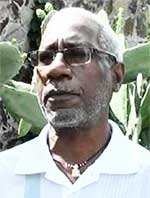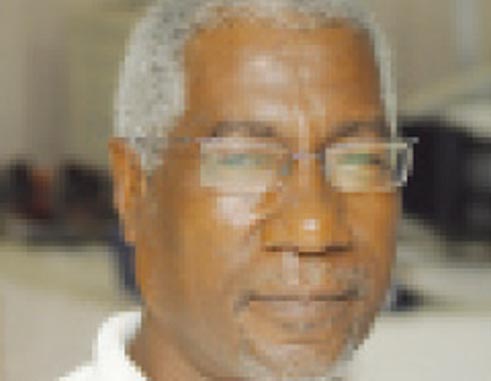
Venezuela’s opposition-controlled National Assembly leader and self-styled ‘Interim President’ Juan Guaido has (finally) agreed to go to the negotiating table in the Caribbean – but with one major pre-condition: he’ll only discuss the departure of elected President Nicolas Maduro, appointment of an Interim Government and fresh general elections two years earlier than constitutionally due.
Following high-level discussions on Venezuela at last week’s 40th Caribbean Community (CARICOM) Heads of Government Summit held July 3-5 in Saint Lucia, Norway’s Ministry of Foreign Affairs revealed on Sunday (July 7) that Guaido had agreed to attend peace talks in Barbados at an unspecified date soon, but Guaido has been spelling-out his preconditions in advance.
It’s not the first time Guaido is playing ‘hard card’ with the Caribbean on Venezuela.
CARICOM, as part of a multilateral effort (also involving Uruguay and Mexico), directly approached him, earlier this year, for talks on a peaceful political solution, but he responded: “The time for talking is over!”
Ever since taking his oath ‘in the presence of God’, Guaido has remained both distant and defiant as far as CARICOM is concerned.
The pro-Washington ‘Lima Group’ in March organized a meeting between him and CARICOM Foreign Affairs Ministers in Barbados (one day after the US President discussed Venezuela in a private meeting with five Caribbean leaders in Florida).
But Guaido only agreed to address the gathered representatives of CARICOM’s 15 nations by videoconference.
Four months later, with the failure of his call for a US-backed military coup on April 30 and subsequent revelation by state security of another subsequent coup plot planned for June 23 and 24, Guaido is forcibly counting his remaining lucky cards and has been participating in quiet negotiations with Maduro’s representatives in Oslo.
The UN Human Rights Commission issued a report (just days before Venezuela’s 208th Independence celebrations on July 5th) that accused Maduro of unfair treatment of political opponents, following which several high-profile ‘political prisoners’, including an ex-judge and a journalist, were released.
While Guaido was again calling for internal rebellion and external military intervention during the annual independence celebrations last Friday, CARICOM leaders were gathered in Saint Lucia for their Annual Summit, during which Venezuela was the main foreign policy agenda item.
The significance of the Caribbean summit was best underlined by the presence at its opening ceremony of Norway’s Prime Minister, as well as the Secretaries General of the United Nations (UN), Association of Caribbean States (ACS) and Organization of American States (OAS) – all involved in common and different searches for Venezuela solutions.
By the time the Saint Lucia Summit was over, Guaido’s representatives had agreed to come to the negotiating table in Barbados – but with his set preconditions.
CARICOM will not have expected the usually emboldened Guaido to have come running to the negotiating table, never mind the bad raps to his reputation of late — including his recent acknowledgement that his appointees embezzled hefty funds raised through a benefit concert organized ahead of the April 30th coup attempt by Virgin Atlantic Chairman Richard Branson to assist Venezuelan soldiers who defected to neighboring Colombia in response to his call for desertion.
CARICOM and the negotiators it’s been involved with have never laid any pre-conditions for Guaido to come to the table, only asking him for a listening ear to the ‘Monevideo Mechanism’, a four-point proposal to bring his and Maduro’s representatives to the table to discuss and agree on verifiable steps towards peace, without external intervention.
All CARICOM has insisted all along is that the warring sides talk peace and agree to a solution that will also eventually see an end to the thousands of fleeing Venezuelan economic refugees landing on Caribbean shores.
The Caribbean Sea has been turned into a hotbed of illegal vessels being chased by US and Caribbean coast guard units while transporting unhappy migrants (and whatever else), as well as US naval vessels preventing Venezuela from shipping its oil while being in an acknowledged state of ‘readiness’.
Norway and CARICOM’s objective is not as much about deciding who will rule Venezuela, but more about ensuring that whatever resolution evolves will also address peace and security concerns and preserve the Caribbean as a Zone of Peace.
In what Guaido continues to treat like an unending verbal boxing match with President Maduro, the would-be international referees have succeeded in convincing him that any real and credible match will have to be preceded by negotiation and agreement on rules of engagement, even before discussing any winner-take-all prize.
Norway and CARICOM want to avoid a deadly fight and are therefore fighting hard to broker an agreement to avoid any side eventually beating the other to a bloody death.
Guaido seems to be saying, however, that while he’s ‘Ready to Rumble’ in Caracas and to talk peace in Bridgetown, Maduro must first throw the white towel of surrender into the ring.
But he will be better advised not to approach smoking the pace pipe by putting unacceptable preconditions on the negotiating table ahead of the Bridgetown peace talks.
Guaido and his backers in Washington may not have regarded CARICOM and the Caribbean’s leaders as players in the search for a Venezuela solution, especially one that does not align with their end-game plan.
But they will find out, possibly and hopefully sooner than later if they haven’t, that CARICOM’s overall strength and experience as a unit in the sensitive area of regional and international diplomacy is much bigger than its comparable size and space on the world’s map.
Here’s to the Norway and CARICOM initiatives, blessed by the UN Secretary General, yielding the desired fruits of peace for Venezuela, through dialogue.













